Pap Smear Test: Why It’s Essential, What to Expect & How to Prepare
Introduction
Preventive care is the cornerstone of maintaining optimal health, particularly in women’s health. Among the various preventive measures, the Pap smear stands out as a crucial test for the early detection of cervical cancer and other HPV-related conditions. This comprehensive guide will delve into their significance, what to expect during the procedure, and how to prepare for it, equipping you with the knowledge needed to prioritize your health effectively.
Understanding Pap Smears
What is a Pap Smear?
Also known as a Pap test, is a simple yet vital medical procedure used to screen for cervical cancer in women. During the test, cells are gently scraped from the cervix—the lower, narrow end of the uterus that opens into the vagina—and examined under a microscope. This screening helps detect any abnormal cells that could indicate precancerous or cancerous changes.
The effectiveness of it lies in its ability to detect abnormalities at an early stage, long before any symptoms appear. Early detection is critical because it allows for timely intervention, which can prevent the development of cervical cancer or lead to more successful treatment outcomes.
History of Pap Smears
The Pap smear is named after Dr. George Papanicolaou, a Greek-American physician who pioneered the test in the early 20th century. Dr. Papanicolaou’s work in cytology—the study of cells—led to the development of this screening method, which has since become a standard practice in women’s healthcare worldwide. Before the widespread adoption of Pap smears, cervical cancer was one of the leading causes of cancer-related deaths among women. However, with regular screenings, cervical cancer rates have declined significantly, demonstrating the profound impact of this simple yet powerful test.
Purpose of Pap Smears
The primary purpose is to detect abnormal cells in the cervix that could potentially develop into cervical cancer. These abnormal cells, often caused by certain strains of the human papillomavirus (HPV), can be treated before they become cancerous. In addition to cancer detection, they can also reveal other conditions, such as infections and inflammation, that might require medical attention.
Understanding their significance goes beyond just recognizing their role in cancer prevention; it underscores the importance of regular screenings as part of a proactive approach to health.
The Procedure: What to Expect During a Pap Smear
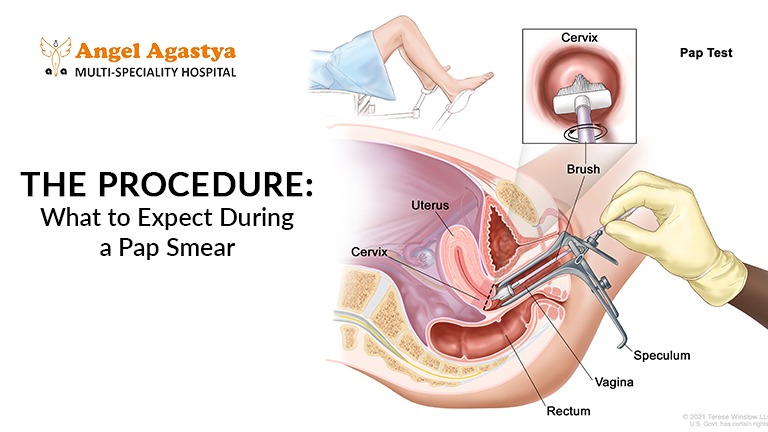
Preparing for Your Pap Smear
Preparation for a Pap smear is straightforward but essential for accurate results. Here are some key steps to ensure you’re ready for your appointment:
- Scheduling: It’s best to schedule your Pap smear when you’re not menstruating, ideally between the 5th and 10th day of your menstrual cycle. This timing helps avoid the interference of menstrual blood, which can affect test results.
- Pre-Appointment Guidelines: In the 24 hours leading up to your Pap smear, avoid douching, using vaginal products, or having intercourse. These activities can wash away or obscure abnormal cells, leading to inaccurate results.
- What to Wear: Choose comfortable clothing, particularly something that’s easy to remove from the waist down. Preparing for your Pap smear can alleviate anxiety and ensure a more comfortable experience.
The Day of the Exam
On the day of your exam, knowing what to expect can help ease any anxiety you may feel:
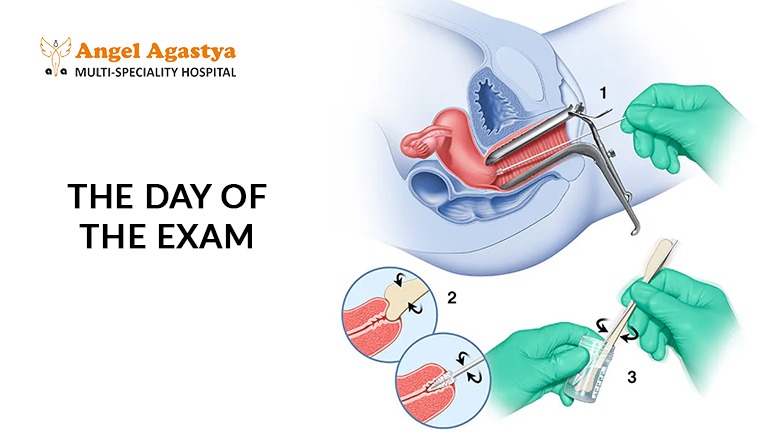
- Check-In Process: Arrive at the clinic a bit early to complete any necessary paperwork. This also gives you time to relax before the procedure.
- Pelvic Exam Preparation: Once in the exam room, you will be asked to undress from the waist down and lie on an examination table with your feet placed in stirrups. The position might feel awkward, but it allows your doctor easy access to your cervix.
The Pap Smear Procedure
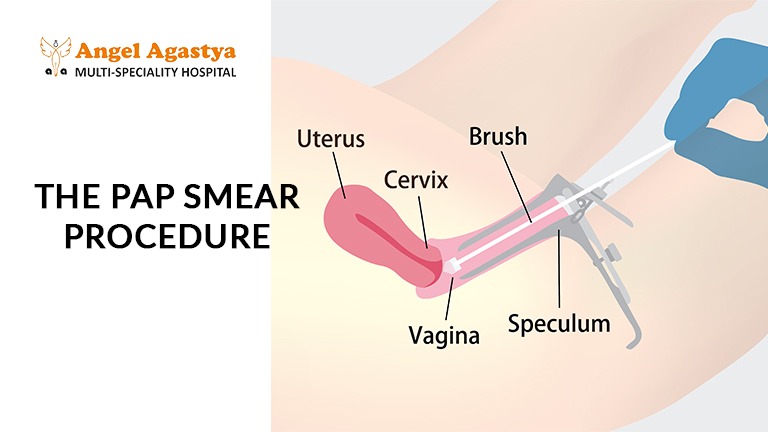
- Speculum Insertion: The doctor will gently insert a speculum into your vagina to hold it open, allowing them to view the cervix clearly. The speculum might feel cold or cause slight pressure, but the discomfort is usually minimal and brief.
- Cell Collection: Using a small brush or spatula, the doctor will collect cells from the surface of the cervix. This part of the procedure is typically quick and painless, although some women may experience a slight pinch or mild discomfort.
After the Exam
Once the cell collection is complete, the speculum is removed, and the procedure is over. You can get dressed and go about your day, though you might experience mild cramping or light spotting, which should subside quickly.
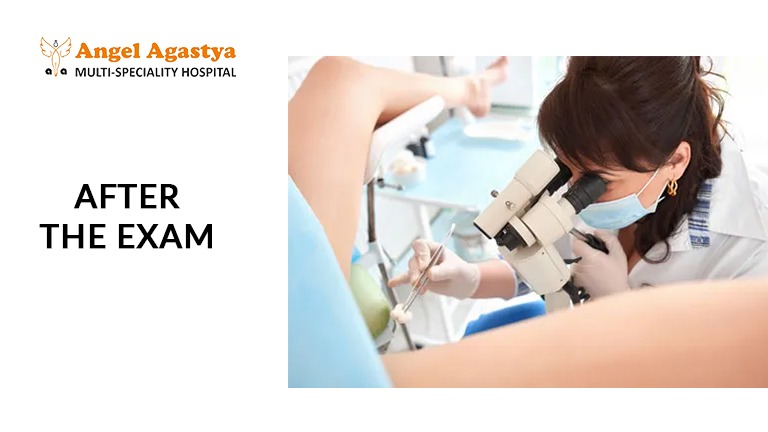
- Waiting for Results: The collected cells are sent to a laboratory for analysis, and you will receive your results within a few weeks. If your results are normal, you can follow your doctor’s recommendations for the next screening, usually every three years.
- Understanding Abnormal Results: If your results indicate abnormal cells, it’s important not to panic. Abnormal Pap smear results may indicate other health issues, but they don’t always signify cancer. Your doctor may recommend additional tests, such as a colposcopy, to examine the cervix more closely or a repeat Pap smear to monitor any changes over time.
The Importance of Regular Pap Smears
Preventing Cervical Cancer
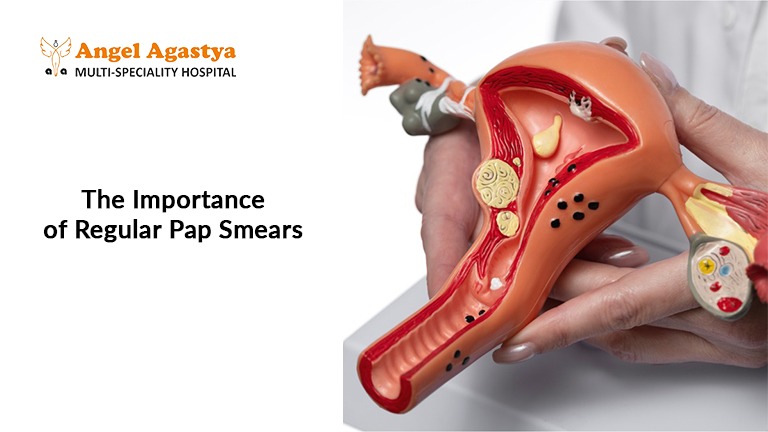
One of the most compelling reasons for regular Pap smears is the prevention of cervical cancer. Cervical cancer is highly treatable when detected early, and it play a crucial role in early detection. By identifying abnormal cells before they become cancerous, they provide an opportunity for early intervention, which can save lives.
HPV and Cervical Cancer
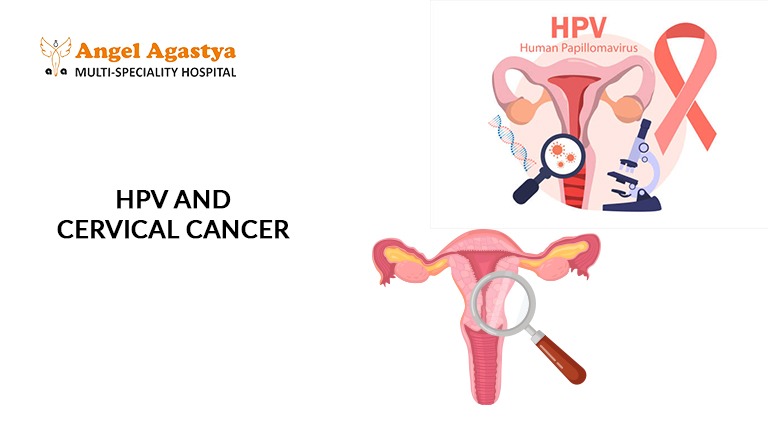
Human papillomavirus (HPV) is a common sexually transmitted infection that is the primary cause of cervical cancer. There are many different strains of HPV, some of which are high-risk for cervical cancer. They can detect changes in cervical cells caused by HPV, allowing for early treatment before cancer develops. The introduction of the HPV vaccine has further enhanced the ability to prevent cervical cancer, but regular Pap smears remain essential for monitoring overall cervical health.
Statistics on Cervical Cancer
The introduction and widespread use of Pap smears have led to a dramatic decline in cervical cancer rates. In countries where regular screenings are common, cervical cancer has dropped from one of the leading causes of cancer-related deaths among women to a much lower-ranking position. However, it’s important to continue regular screenings, as the benefits of early detection and prevention far outweigh the risks.
Beyond Cancer: Other Health Benefits
Pap smears also offer the advantage of detecting other gynecological conditions, such as infections, inflammation, and precancerous lesions. Early detection of these conditions can lead to more effective treatments and better overall health outcomes. Regular screenings allow women to address potential health issues before they become more serious, contributing to long-term health and well-being.
Addressing Common Fears and Misconceptions
Despite the importance of Pap smears, many women feel anxious or fearful about the procedure. Common concerns include discomfort, embarrassment, or the fear of receiving bad news. It’s crucial to address these fears by understanding that they are generally quick, painless, and can prevent serious health issues. Open communication with your healthcare provider can also alleviate anxiety and ensure that you feel comfortable and informed throughout the process.
Empowering Yourself: Tips for a Smooth Experience
Mental Preparation
Understanding what to expect during a Pap smear can significantly reduce anxiety. Knowledge is empowering, and being informed about the procedure can help you approach it with confidence. Remember that the Pap smear is a preventive measure designed to protect your health.
Support System
If you’re feeling particularly nervous, consider bringing a trusted friend or family member to the appointment for emotional support. Having someone with you can provide comfort and help ease any anxiety you may feel.
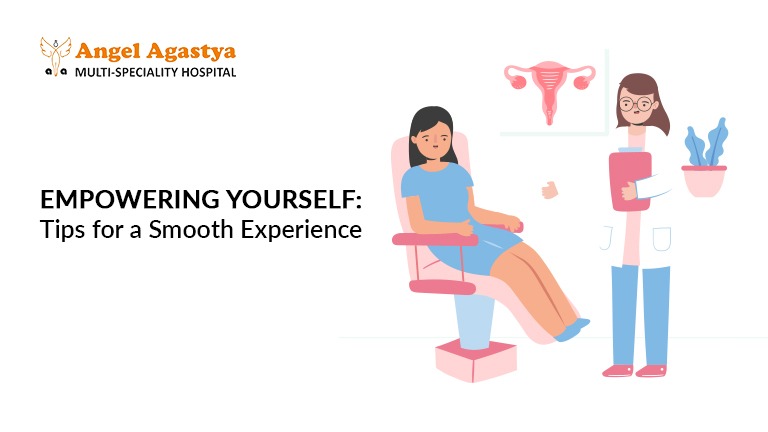
Pain Management
Most women find Pap smears to be painless, but if you’re concerned about discomfort, talk to your doctor beforehand. They can offer tips on relaxation techniques or, in some cases, suggest over-the-counter pain relief to take before the procedure.
Open Communication
Your gynecologist is there to help you. Don’t hesitate to ask questions, express any concerns, or request explanations about any part of the process. Open communication with your healthcare provider ensures that you are fully informed and comfortable during your Pap smear.
Empowering Yourself: Taking Control of Your Health
Prioritize your health for a more fulfilling life. By staying informed about the importance of Pap smears and adhering to a regular screening schedule, you are taking proactive steps to protect your health and well-being. Early detection is the key to successful treatment, and they are an essential tool in your healthcare routine.
- Knowledge is Power: Understanding the significance of Pap smears gives you the knowledge needed to prioritize your health.
- Regular Screenings: Incorporate it into your annual healthcare routine to ensure ongoing monitoring of your cervical health.
- Early Detection: Remember that early detection of cervical cancer or other abnormalities greatly improves treatment outcomes.
- Seek Professional Guidance: Always consult with a qualified gynecologist for personalized advice and care.
Conclusion:
Regular Pap smears are a vital component of women’s health care. By understanding the procedure, preparing adequately, and maintaining open communication with your healthcare provider, you can ensure that your Pap smear experience is smooth and stress-free. Remember, early detection through regular Pap smears can save lives by preventing cervical cancer and other gynecological issues. Prioritize your health by making it a regular part of your healthcare routine and empower yourself to take control of your well-being.

By following this guide, you can approach your Pap smear appointments with confidence and take a proactive role in maintaining your health. Early detection is not just about preventing disease—it’s about living a healthy, empowered life.
FAQs:
1. What is a Pap smear, and why is it important?
This is a screening test for cervical cancer. It detects abnormal cells in the cervix that could develop into cancer, allowing for early treatment.
2. How often should I get a Pap smear?
Women aged 21-65 should generally get every 3 years. After age 30, a combined Pap smear and HPV test every 5 years may be recommended.
3. Can I get a Pap smear during my period?
It’s best to avoid scheduling a Pap smear during menstruation, as blood can affect the accuracy of the test.
4. What should I avoid before a Pap smear?
Avoid douching, using vaginal products, and having intercourse 24 hours before the test to ensure accurate results.
5. What does it mean if my Pap smear results are abnormal?
Abnormal results do not necessarily mean cancer. It could indicate changes in cervical cells that require further testing or monitoring.
6. Is it painful?
Most women experience minimal discomfort during a Pap smear, although some may feel a slight pinch or pressure.
7. What happens if I test positive for HPV?
A positive HPV test indicates the presence of the virus. Your doctor may recommend more frequent screenings or additional tests.
8. Do I need a Pap smear if I’ve had the HPV vaccine?
Yes, you should still get regular Pap smears even if you’ve had the HPV vaccine, as it doesn’t protect against all cancer-causing HPV types.
9. Can I have a Pap smear if I’m pregnant?
Yes, Pap smears are safe during pregnancy and are often part of prenatal care, especially in early pregnancy.
10. How should I prepare for my Pap smear appointment?
To prepare, avoid using tampons, douching, or having sex 24 hours before the test. Wear comfortable clothing and relax as much as possible.

